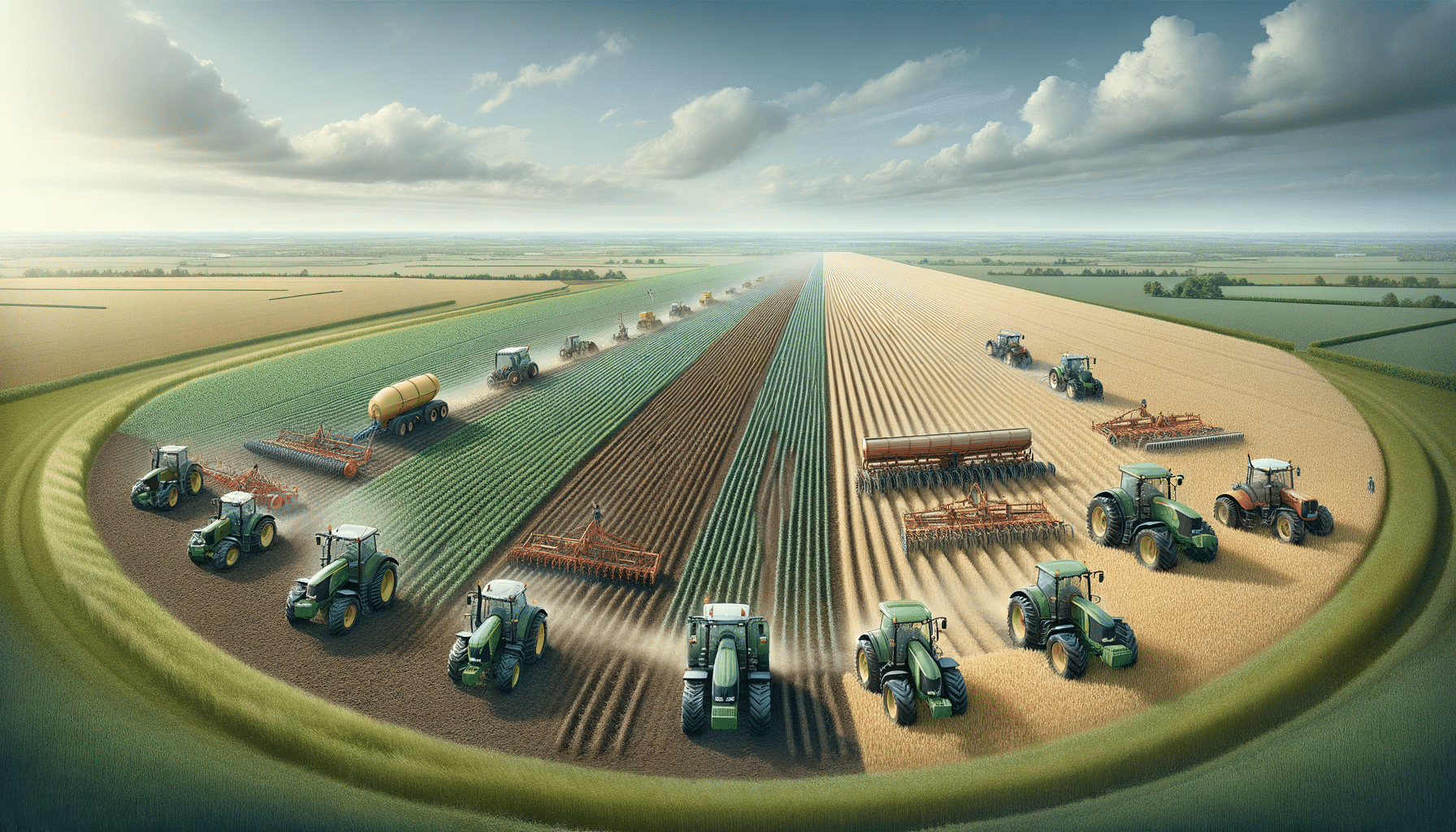
The Role of Tractors in Modern Agriculture
Introduction to Tractors in Agriculture
Tractors have long been a cornerstone of agricultural operations, revolutionizing the way farming is conducted. Their introduction marked a significant shift from manual labor to mechanized farming, allowing for increased efficiency and productivity. The importance of tractors in agriculture cannot be overstated, as they have enabled farmers to manage larger areas of land with less effort and time.
Originally designed to replace animal labor, tractors have evolved into sophisticated machines capable of performing a wide range of tasks. From plowing and planting to harvesting and transporting, tractors have become versatile tools that are essential to modern farming practices. By reducing the reliance on human labor, tractors have also contributed to lowering the cost of agricultural production, making food more affordable for consumers worldwide.
The Evolution of Tractor Technology
The evolution of tractor technology has been remarkable, with continuous advancements enhancing their functionality and efficiency. Early tractors were powered by steam engines, which were eventually replaced by internal combustion engines. This transition significantly improved the power and reliability of tractors, allowing them to handle more demanding tasks.
Today’s tractors are equipped with cutting-edge technology, including GPS systems, autonomous driving capabilities, and precision farming tools. These innovations have transformed tractors into smart machines that can optimize field operations. For example, GPS-guided tractors can follow precise paths, reducing overlap and ensuring even coverage of fields. This precision not only saves time and resources but also minimizes the environmental impact of farming practices.
- GPS and precision farming tools
- Autonomous driving capabilities
- Improved power and reliability
Tractors and Sustainable Farming Practices
As the world becomes more environmentally conscious, the role of tractors in promoting sustainable farming practices has gained attention. Modern tractors are designed to be more fuel-efficient and emit fewer pollutants, aligning with global efforts to reduce carbon footprints. Manufacturers are continuously exploring alternative energy sources, such as electric and hybrid engines, to further minimize environmental impact.
Moreover, tractors play a crucial role in conservation tillage practices, which aim to preserve soil health and reduce erosion. By using specialized attachments, tractors can perform tasks like no-till planting, which maintains soil structure and reduces the need for chemical inputs. These sustainable practices not only benefit the environment but also enhance the long-term productivity of agricultural land.
Economic Impact of Tractors on Agriculture
The economic impact of tractors on agriculture is profound, as they have significantly increased the productivity and profitability of farming operations. By enabling farmers to cultivate larger areas of land more efficiently, tractors have contributed to higher crop yields and improved food security. This increased productivity has also allowed farmers to diversify their operations, growing a wider variety of crops and entering new markets.
In addition to boosting output, tractors have reduced the labor costs associated with farming. By mechanizing tasks that were once labor-intensive, tractors have helped farmers manage their operations more effectively, leading to cost savings and increased competitiveness. These economic benefits have ripple effects throughout the agricultural supply chain, supporting rural economies and contributing to global food supply.
- Increased productivity and profitability
- Higher crop yields
- Cost savings and competitiveness
The Future of Tractors in Agriculture
Looking ahead, the future of tractors in agriculture is promising, with ongoing technological advancements set to further enhance their capabilities. The integration of artificial intelligence and machine learning is expected to revolutionize tractor operations, enabling them to make data-driven decisions and optimize field management in real-time.
As the demand for sustainable and efficient farming practices grows, tractors will continue to play a pivotal role in shaping the future of agriculture. The development of electric and autonomous tractors is likely to accelerate, providing farmers with innovative solutions to meet the challenges of modern farming. By embracing these advancements, the agricultural industry can continue to improve productivity while minimizing its environmental impact.


